I liked the first 26 minutes of the presentation in which Abu Open Heart Trial was summarized. The latter half of the video was about the philosophy of Rajayoga, which I found confusing.
Research paper: (2011) Regression of coronary atherosclerosis through healthy lifestyle in coronary artery disease patients — Mount Abu Open Heart Trial.
Study design: The study had a control group and an intervention group. Both groups adopted a low fat, vegetarian diet (but not Esselstyn-style strict WFPB guidelines). The difference between the two groups lay in adoption of meditation & lifestyle changes (through adoption of Raja Yoga). A large number of health markers (related to heart disease, diabetes, obesity, hypertension, metabolic syndrome, sleep quality, stress, …) were tracked at regular intervals (about 6 months apart?). Also, intensive psychological tests were done periodically. Participants were tracked for multiple years before the study was published. In the presentation below, Dr Satish Gupta explains that changes in health markers & psychological markers were remarkable.
Results: This study demonstrates that a combination of a relatively healthy diet (low fat, vegetarian) combined with a spiritual practice like Rajayoga meditation improves our health much more than adoption of healthy diet (low fat, vegetarian) alone.
Below are slides from the presentation which showcase changes in sleep, autonomous nervous system, cardiac events, EEG patterns, and so on.
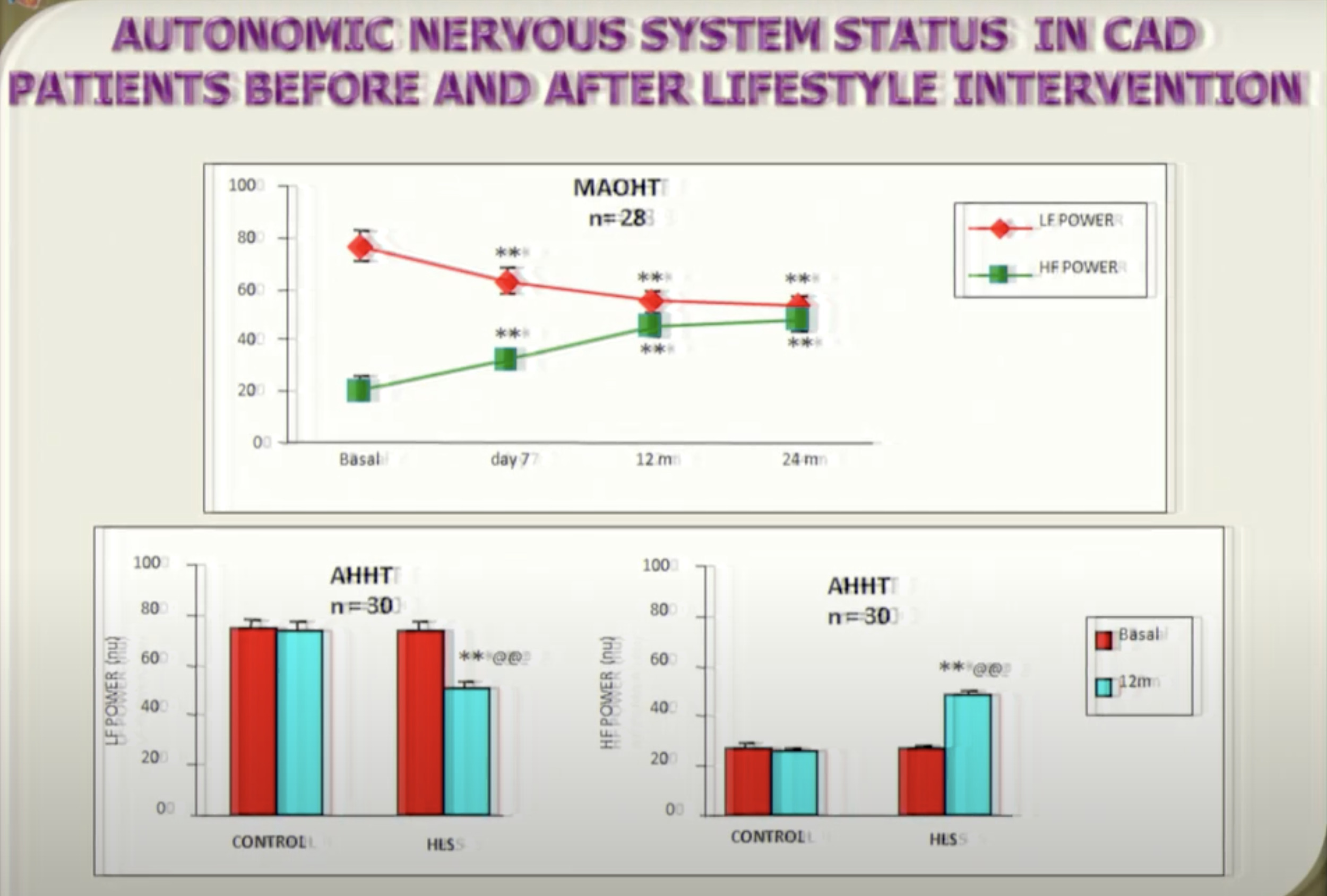
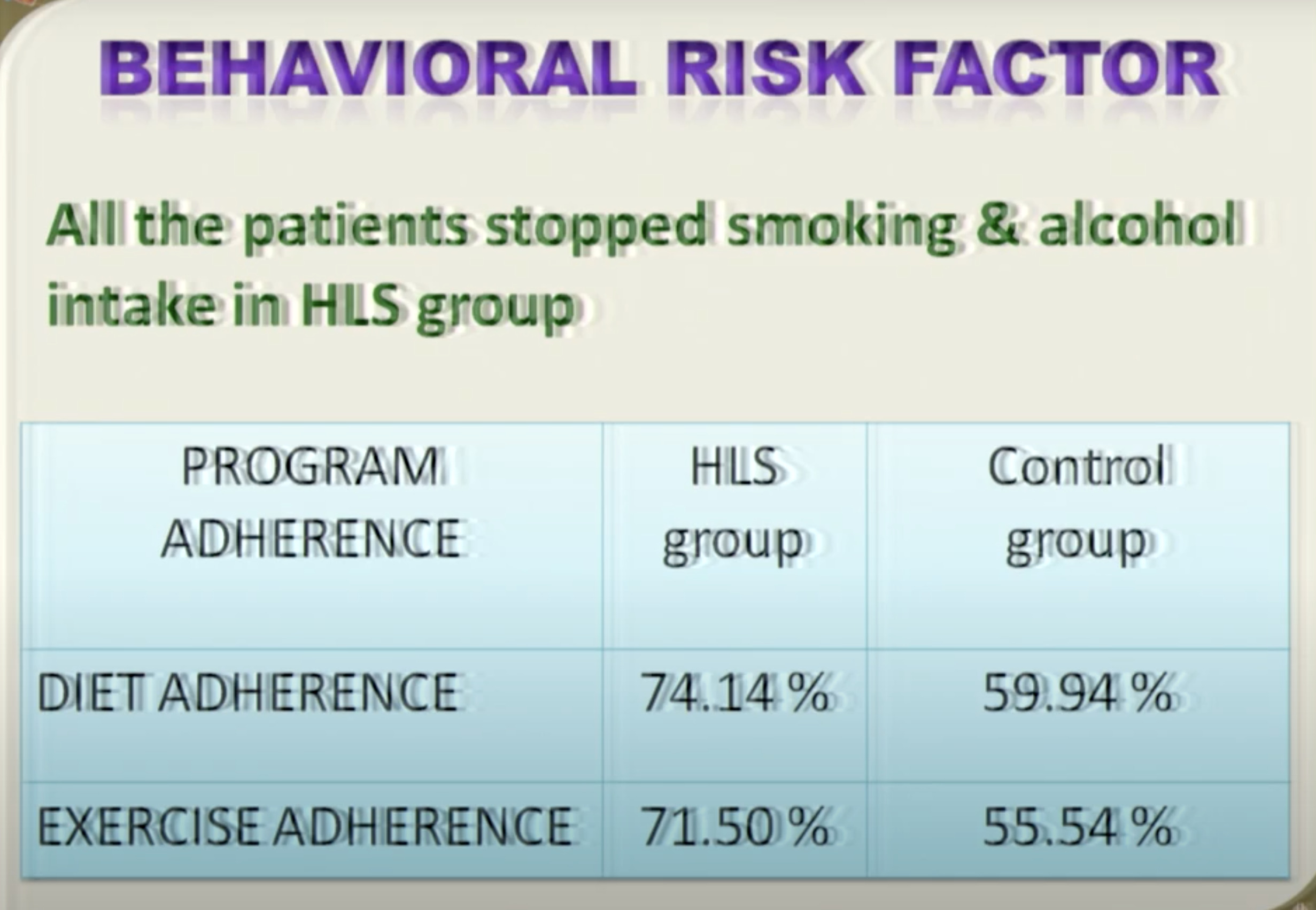
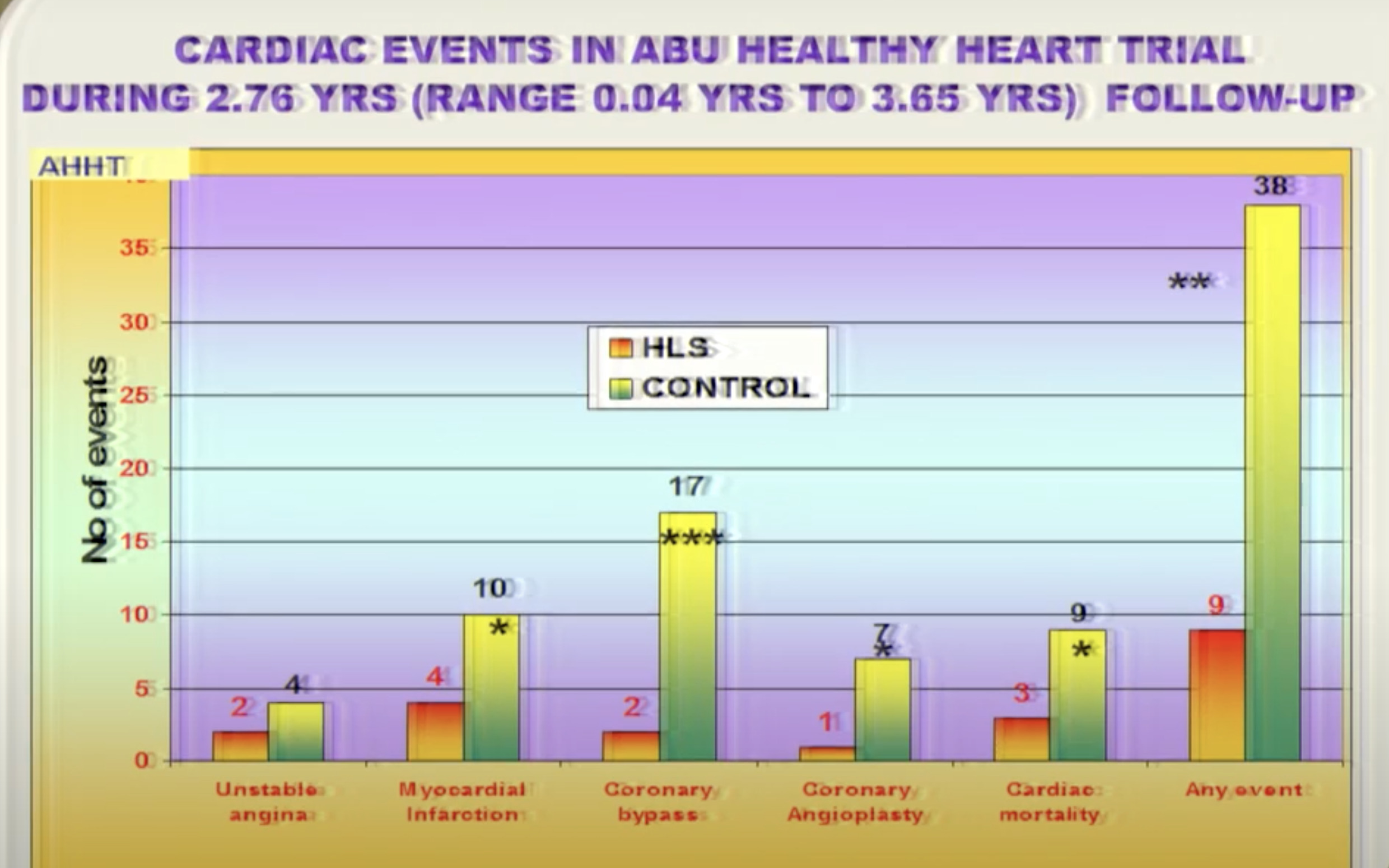
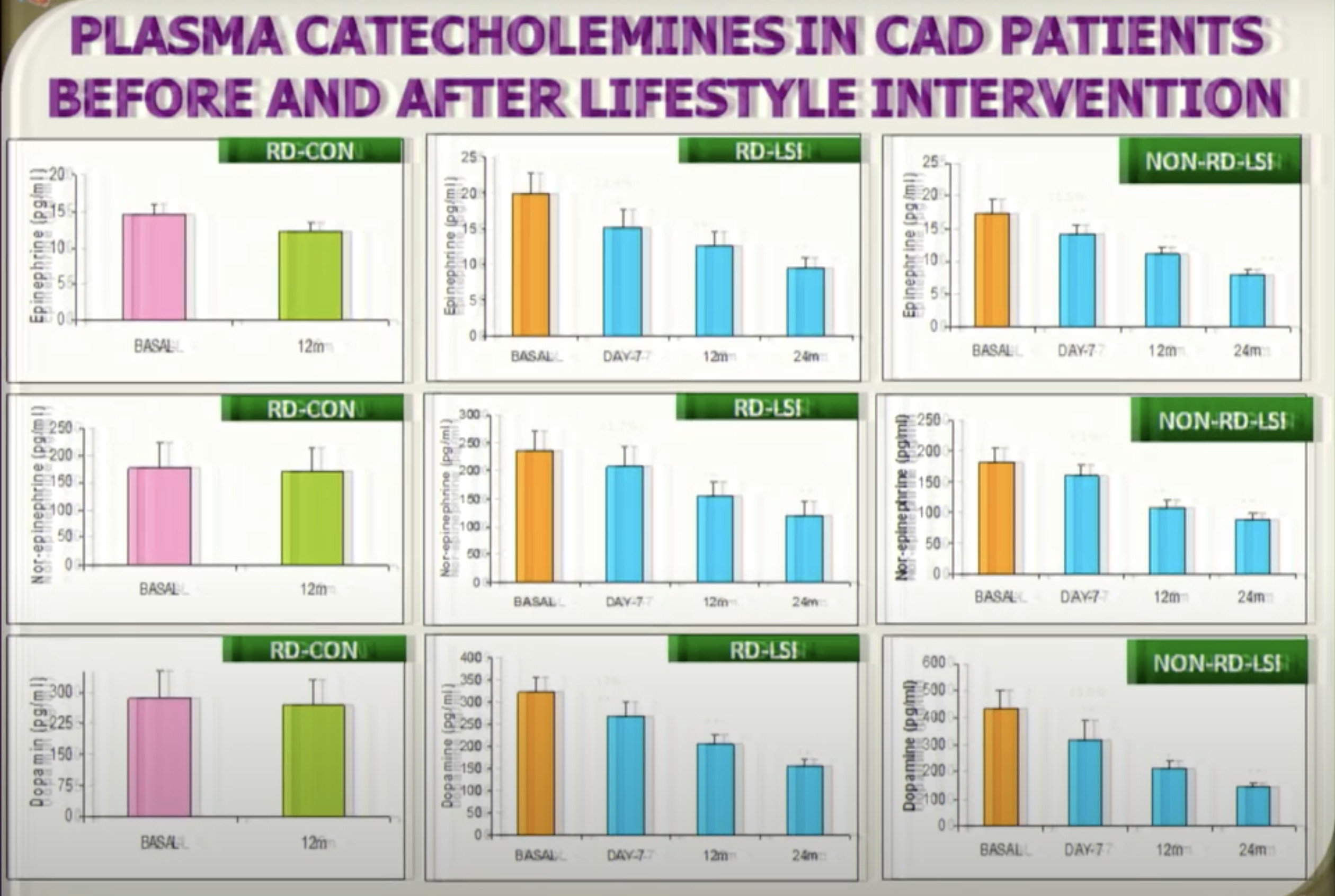
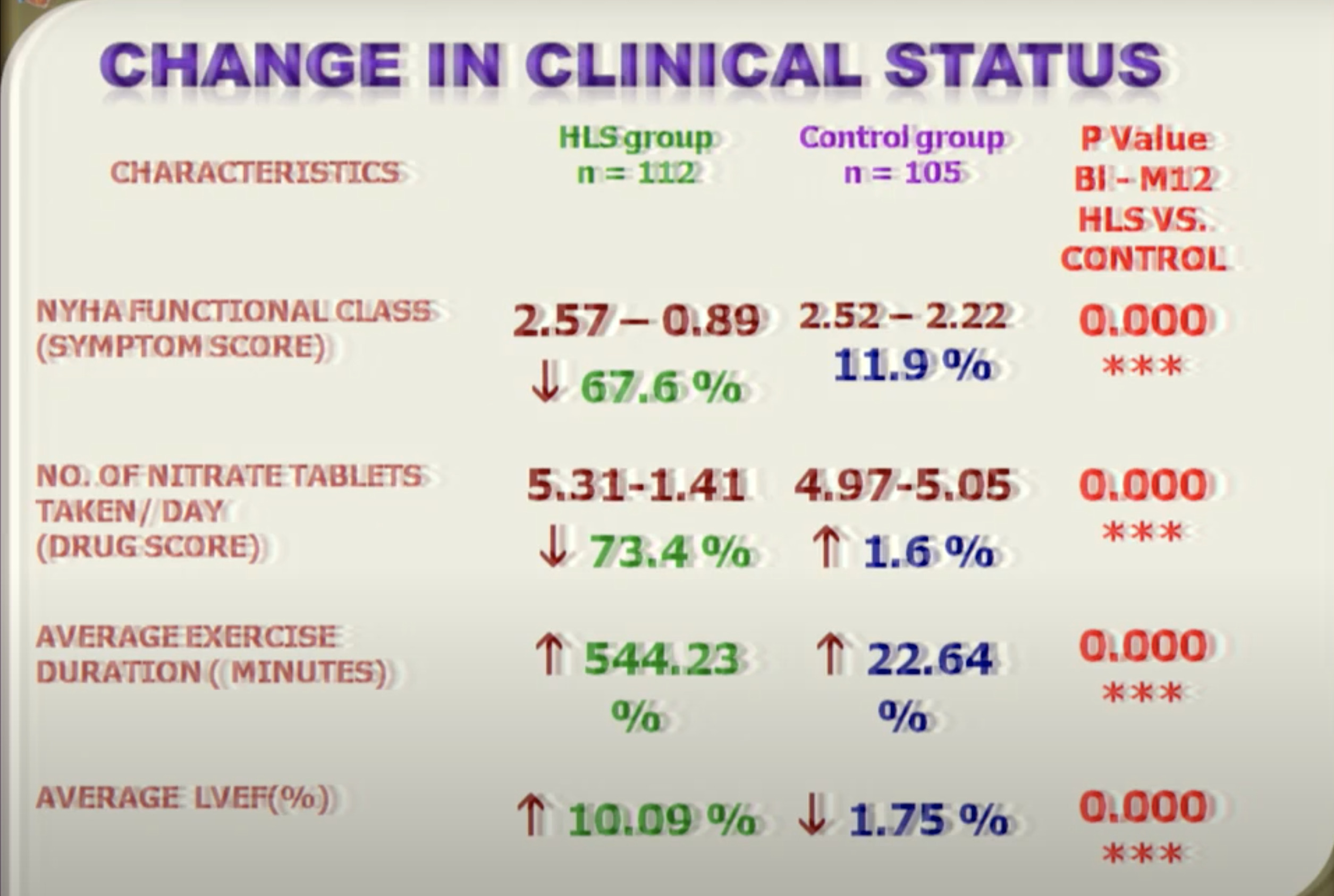
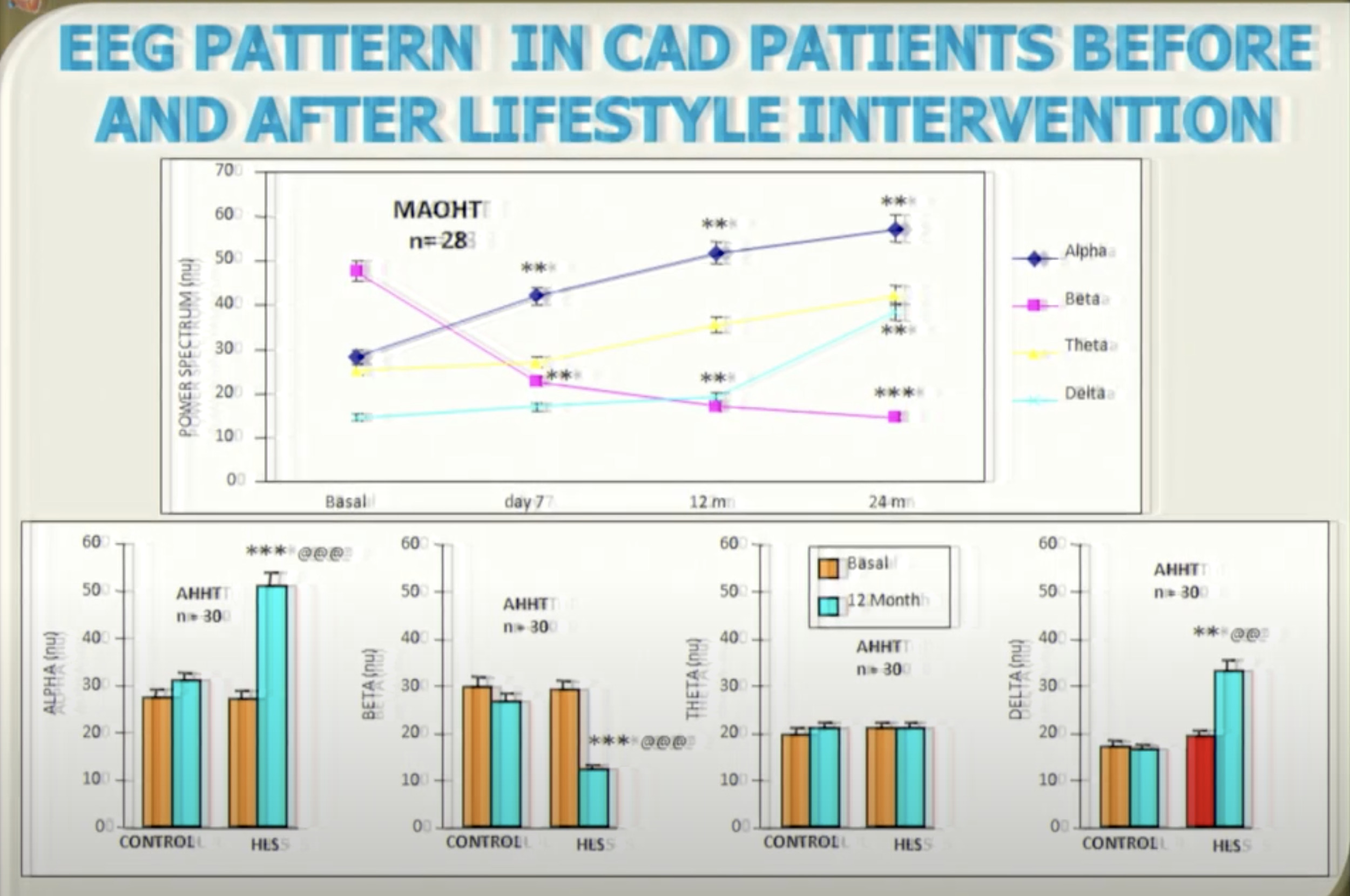
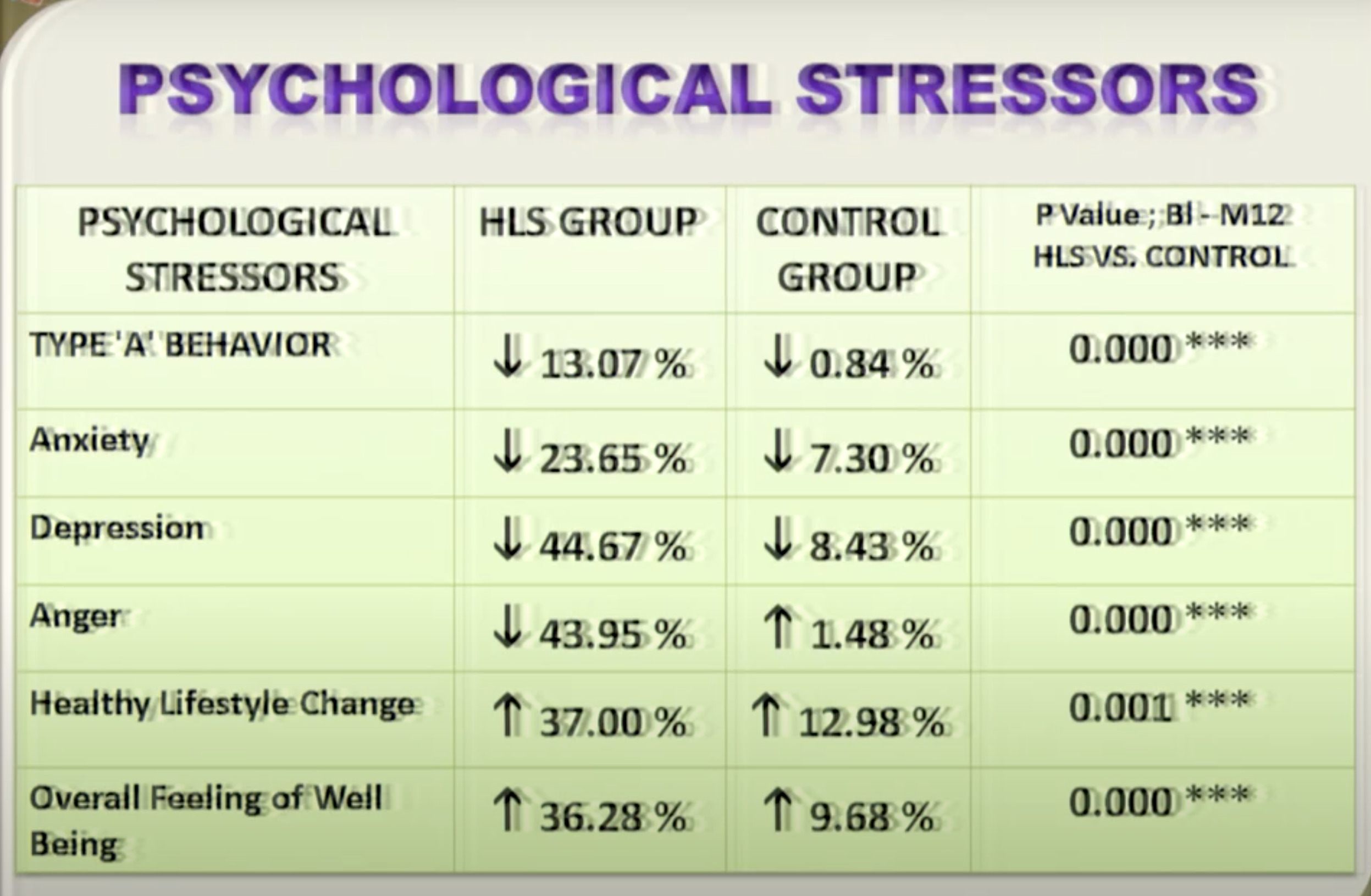
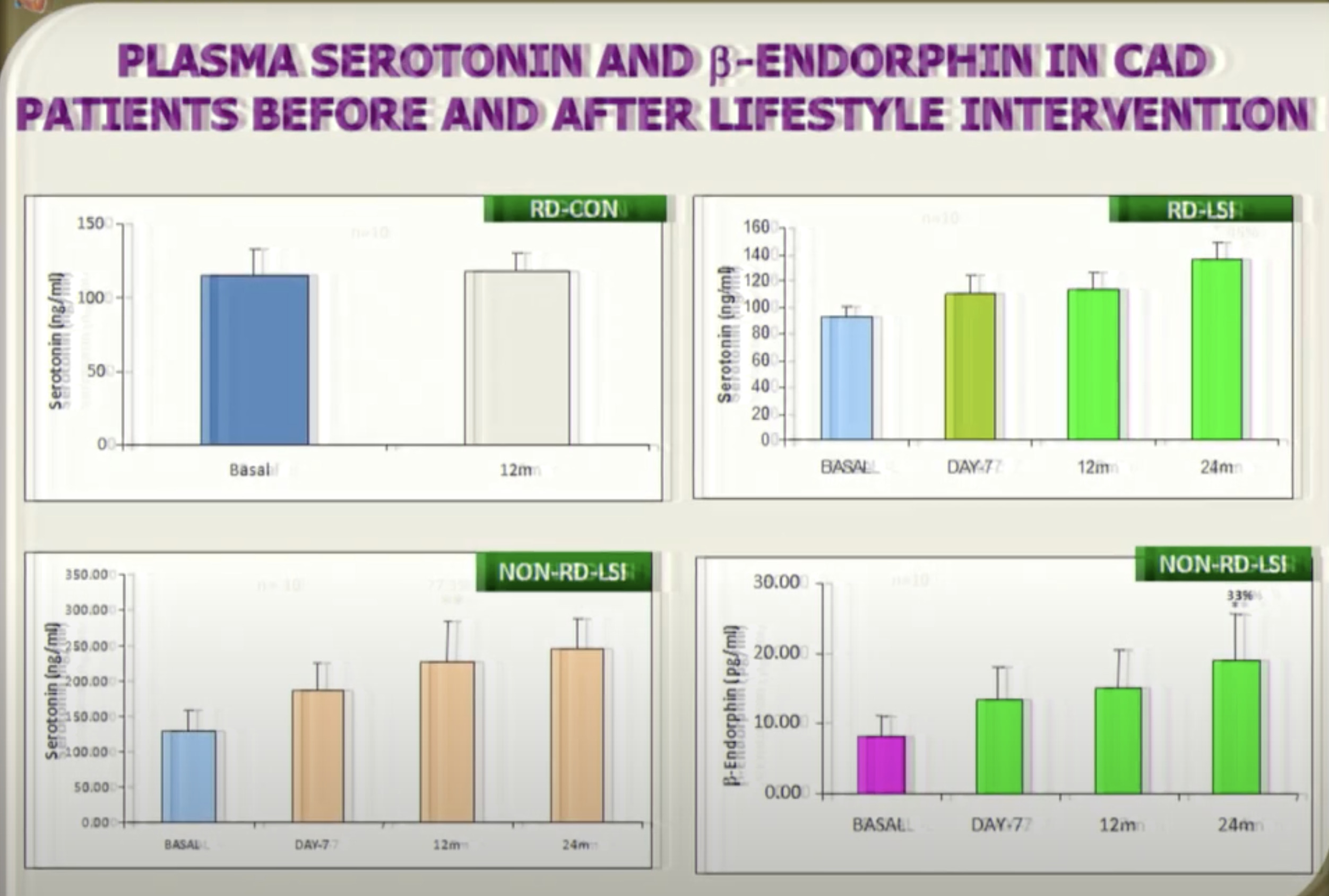
How does Abu Open Heart Trial (a low fat, vegetarian diet coupled with a spiritual practice like Raja Yoga) compare with adoption of Esselstyn-style strict WFPB guidelines optimized for heart health? Let's compare the profile of patients and their health outcomes in Abu Open Heart Trial and Esselstyn's 198-person study.
Study participants (Abu Open Heart Trial):
Health outcomes (Abu Open Heart Trial):
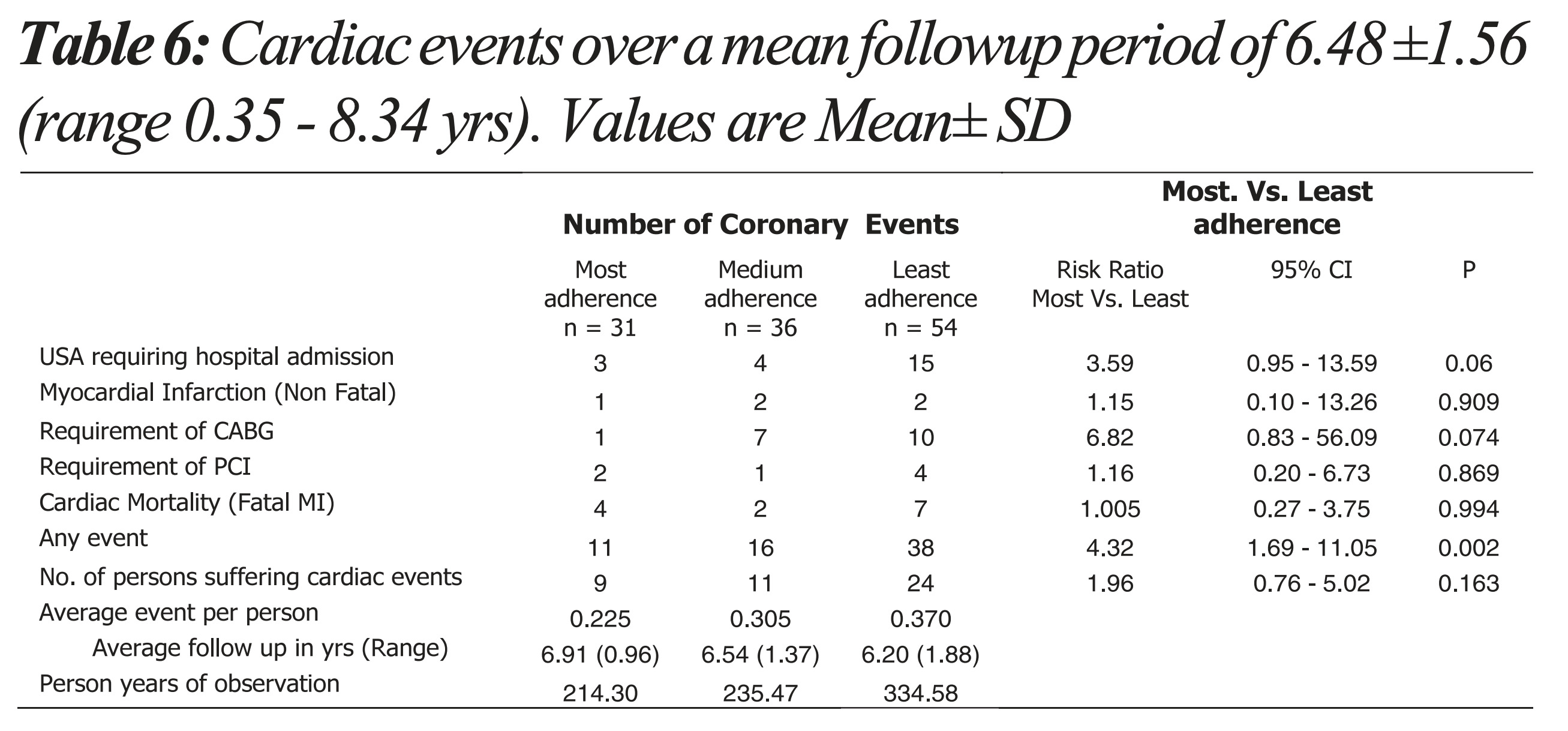
Source: Table 6 from (2011) Regression of coronary atherosclerosis through healthy lifestyle in coronary artery disease patients — Mount Abu Open Heart Trial (PDF file).
Study participants (Esselstyn Study): Dr Esselstyn summarized a series of studies in this paper: A plant-based diet and coronary artery disease: a mandate for effective therapy, J Geriatr Cardiol, 2017 May; 14(5): 317-320.
Health outcomes (Esselstyn Study):
Dr Esselstyn's dietary interventions (without any emphasis on sterss management or meditation) had much better health outcomes for heart patients: 99.4% of the participants who adhered to WFPBN avoided any major cardiac event including heart attack, stroke, and death, and angina improved or resolved in 93%. These are mind-boggling numbers. No wonder Dr Esselstyn calls heart disease 'a food-borne illness' (see Dr Esselstyn's TED Talk from 2014).
The Abu Open Heart Trial showed that stress management via meditation has a profound impact on various health markers for mental health and metabolic disease.
What did I learn? For heart disease prevention and reversal, I have adopted Dr Esselstyn's strict WFPB guidelines. For overall improvement in myriad health markers (not limited to heart disease alone), I have adopt stress management via meditation. Adopting both is a great idea!
Is this really true? At one point during the presentation, Dr Gupta mentions that over the years, he has developed an interesting skill: he can now map the location(s) of heart blockages to personality / psychology profile of the individual without having met the individual previously! In other words, there is an association between psychological markers (anxiety, Type A behavior, lack of emotional support, lack of social support, cynicism, hostility, …) and the specific locations (and combinations of locations) of arterial blockages. Is this really true? Has this been published in peer reviewed research? Please let me know.

 Instagram
Instagram YouTube
YouTube